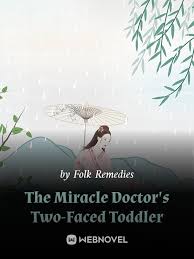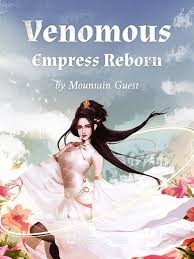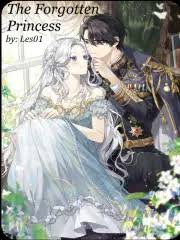The Story in 3 Sentences
A revered goddess abandons her divine status for love, only to be met with betrayal and cruelty from the husband who vowed to cherish her alone.
Reborn with the skills of a 2090 military surgeon, she transforms from a victim into a vengeful strategist, dismantling her enemies while building an empire of her own.
After a decisive divorce, she commands the adoration of powerful suitors and coldly rejects her ex-husband’s desperate pleas, declaring her child needs no father.
Why It Stands Out
1. The Ultimate Revenge Fantasy Fueled by Modern Wit
It takes the classic trope of the wronged wife and supercharges it with a protagonist who isn’t just noble-born but a time-traveling medical expert. Her revenge isn’t a slow burn of subtle hints; it’s a calculated, often brutal, dismantling of everyone who wronged her, offering a deeply satisfying catharsis for readers tired of passive heroines.
2. A Love Polygon That Actually Matters
The story doesn’t just offer a single rebound romance. It presents a compelling array of suitors—a renowned general, a divine doctor, a top scholar—each representing a different path and ideal. This creates genuine tension and forces the protagonist, and the reader, to consider what she truly deserves after her trauma, making her final choice (or lack thereof) far more impactful.
3. The Unapologetic “Get Lost” Energy
The novel’s most iconic and celebrated moment is its core ethos: the female lead’s complete and utter rejection of her abuser. His public, tearful begging is met not with hesitation or a soft heart, but with a swift, dismissive kick. This unyielding stance, where the heroine prioritizes her peace and her child’s well-being over societal pressure or a man’s remorse, is its most powerful and distinguishing feature.
Characters That Leave a Mark
There’s Lin Xuanxuan – a loyal friend whose bustling presence and sharp concerns provide crucial support and grounding for the protagonist amidst the chaos, often acting as her confidante and sounding board.
You’ll meet Ye Jiuxiao, who is the formidable Regent King, an unapproachable and almighty figure whose intervention is the ultimate symbol of the protagonist’s ascended status and the final barrier between her and her past torment.
The Flaws Fans Debate
The plot frequently recycles the same abusive scenarios, making the narrative feel stagnant and repetitive over hundreds of chapters.
Despite possessing advanced medical knowledge and a secret space, the protagonist often endures prolonged suffering instead of proactively eliminating threats, which frustrates readers who expect a more decisive revenge.
The male lead’s abuse is so extreme and persistent, and the female lead’s delayed retaliation so pronounced, that the story can feel like “rage bait,” designed to keep readers in a constant state of anger rather than providing satisfying progression.
Must-Experience Arcs
Ch. 1–50: The Fall from Grace – Witness the goddess’s heartbreaking descent from revered royalty to a despised, abused wife, setting the stage for her transformation as she endures betrayal and humiliation at the hands of her husband and his household.
Ch. 200–300: The Surgeon’s Gambit – Watch as Chu Nanli fully leverages her modern medical skills and strategic mind, turning the tables on her enemies with cunning schemes and establishing her own power base, marking the true beginning of her revenge.
Ch. 500–531: The Throne of Solitude – Experience the climax where suitors vie for her hand, her ex-husband’s pleas reach their pathetic peak, and she delivers her final, iconic rejection, securing her independence and future on her own uncompromising terms.
Killer Quotes
“Get lost, my child doesn’t need a father!”
“Second wish: may those who harmed me suffer unbearably, with tears of heartache, and meet a bitter end!”
Cultural Impact
The line “Get lost, my child doesn’t need a father!” became a viral meme and a battle cry for female empowerment in online romance communities.
It sparked intense debates on forums about the “too slow to revenge” trope and the ethics of dragging out a protagonist’s suffering for plot.
Despite criticisms, its sheer popularity cemented its place as a staple in the “abusive husband gets karma” subgenre, frequently recommended for its cathartic ending.
Final Verdict
Start Here If You Want:
A cathartic, no-holds-barred revenge story against an irredeemable ex.
To see a strong female lead who ultimately chooses herself and her child above all else.
A classic romance plot with a modern, badass twist and a satisfyingly dismissive ending.
Study If You Love:
Analyzing the evolution of the “strong female lead” trope in webnovels, particularly the shift from passive endurance to active, sometimes brutal, retribution.
Exploring narrative structures built around prolonged suffering and delayed gratification, and their psychological impact on the reader.
Examining cultural themes of female autonomy, divorce, and rejecting patriarchal reconciliation narratives in popular fiction.
Avoid If You Prefer:
Fast-paced plots with immediate and decisive action from the protagonist.
Stories where the male lead is redeemable or where reconciliation is the end goal.
Novels that avoid graphic depictions of emotional and psychological abuse, even if justice is eventually served.





